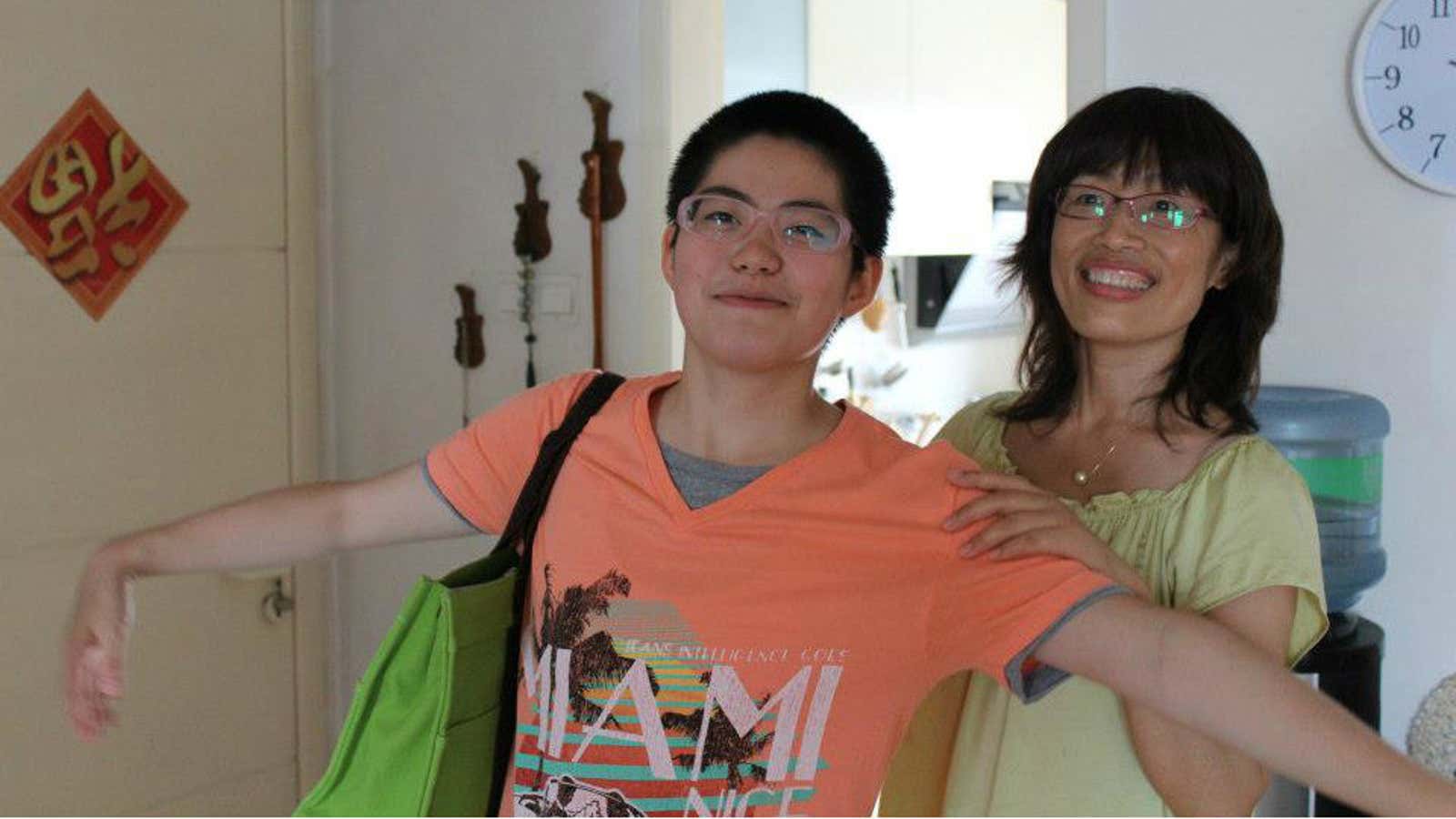When content gets scrubbed from the Chinese internet, censors and hosting websites seldom offer any explanation—the removal is non-negotiable. So the upcoming court case of Fan Popo, a 29-year-old filmmaker from Beijing, stands out.
In 2012, Fan shot a documentary called Mama Rainbow. After making the rounds at film festivals in the US and China, Fan also uploaded it to Youku, Tudou, and 56.com, three popular video streaming sites in China. In two years, Fan says the films received a total of about 1 million views.
But Fan claims he soon found himself a victim of China’s censorship policies. In December 2014, Fan noticed the film had been removed from the websites. When he reached out 56.com, he says the company told him it was ordered to take down the film by SARFT—the State Administration of Radio, Film and Television, which oversees China’s entertainment industry. When he contacted SARFT, it denied any involvement.
This led Fan to sue SARFT last March. Surprisingly, as state media outlet Global Times reported this week, a municipal Beijing court accepted the case.
Fan’s 30-minute film, which is also available on YouTube, interviews four Chinese mothers about how they came to embrace and accept their child’s homosexuality, in a society where gay culture remains somewhat taboo. One woman explains that she now tells her daughter “if you feel happy, if you feel good about it, then just go ahead and love somebody, regardless of his or her gender.”
It’s far from radical—Fan depicts homosexuality as an ordinary part of life, albeit one that some Chinese parents learn to accept with difficulty. Nor does it rock the boat politically, unlike Under the Dome, a documentary that lays the blame for China’s environmental crisis on the government, and was scrubbed from the internet after going viral in March.
“I’m also very confused as to why it has been removed. There is no ‘sensitive content’ in the film,” Fan told Quartz. “But it confirms that censorship standard are messy, and almost random.”
Results from a 2013 Pew Research survey show that only 21% of Chinese respondents believe that society should accept homosexuality. But attitudes towards homosexuality in China appear to be evolving. In July, a 22-year-old college student came out during her graduation ceremony, earning her an outpouring of support on social media. Last year, a 30-year-old gay man won a court case against a local clinic that told him to seek shock treatment for his homosexuality.
It’s not clear if these changing attitudes will help Fan take on SARFT— a powerful organization that is part of China’s State Council, and also controls the state television channel CCTV. Peter Schloss, a lawyer who has worked in China’s media industry for decades, says that it’s possible the case was accepted to re-enforce the government’s power to censor, rather than question it.
“I can only speculate that they have decided to hear the case to reiterate in very clear terms that SARFT has the authority to regulate the online video sector,” he tells Quartz. “We are in an environment in China today where even an innocuous TV show like the Big Bang Theory was ordered off of online video sites, and various keywords are censored from online search engine results for what often seem like the silliest of reasons.”
Fan says he’s not optimistic about the outcome either, but nevertheless feels it’s important to pursue legal action.
“I’m suing because I want to get an impartial answer to who is lying—56.com or SARFT,” he tells Quartz. “As for whether I’ll win, I’m not confident. But regardless of the outcome, I hope I can encourage everyone to question our current censorship system.”
